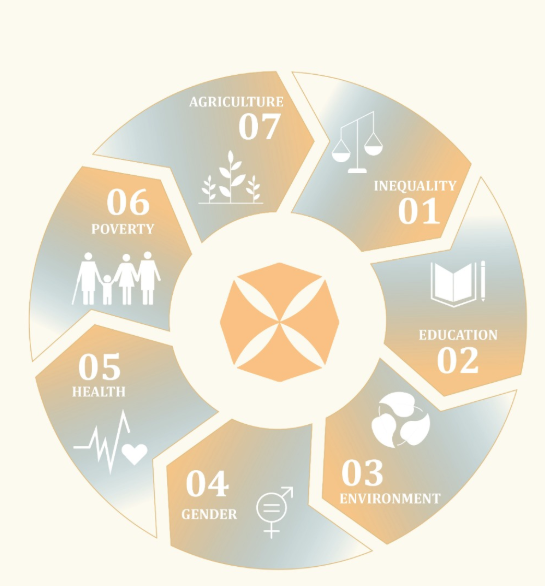Consumer, Covid-19 And Co-operatives
Apr 01, 2021 | Konark Ogra
 The most urgent issue affecting cooperatives since the onset of pandemic is the financial crisis of businesses. Hundreds of millions worth losses have been incurred due to the quarantine. Some operations had to be closed, a number of workers had to remain in closed quarantine, the disruption in supplies of materials for production from different parts of the world, sales routes too are sluggish. In these challenging times, the advantages of cooperation are key to help coping with the crisis in all its facets. Cooperatives, many created in times of need a long time ago, show that solidarity is part of our economic activity today. They prove that cooperatives are resilient to crises as they adapt to new situations, finding innovative solutions to serve their members and customers.
The most urgent issue affecting cooperatives since the onset of pandemic is the financial crisis of businesses. Hundreds of millions worth losses have been incurred due to the quarantine. Some operations had to be closed, a number of workers had to remain in closed quarantine, the disruption in supplies of materials for production from different parts of the world, sales routes too are sluggish. In these challenging times, the advantages of cooperation are key to help coping with the crisis in all its facets. Cooperatives, many created in times of need a long time ago, show that solidarity is part of our economic activity today. They prove that cooperatives are resilient to crises as they adapt to new situations, finding innovative solutions to serve their members and customers. Key Challenges faced by Co-operatives amidst the pandemic:
Organised cooperatives and individual dairy farmers have laid off employees to cut the cost due to drastic fall in sales and at times threw away milk on roads and rivers as they could not sell it.
It has become extremely difficult to arrange fodder as most of the trucks carrying feed for livestock have stopped plying since the 21-day lockdown was announced on March 24, and then extended till May 3 to fight the coronavirus pandemic.
There has been an acute shortage for businesses loan funding during the crisis, the government has been trying to provide loans on easier interest rates but this tool does not seem to meet the needs of worker cooperatives. Worker cooperatives, based on member’s work, do not usually have substantial fixed assets and might need cover during the crisis. Worker members receive unemployment benefit and the government’s intention is to ease the bureaucracy encountered when applying for the benefits.
Under the current circumstances, the self-employed are also eligible for unemployment benefit. It would seem that cooperatives prefer to benefit from direct business subsidies initially, before turning to employment support at a later stage.
Very often, the fundamental role played by cooperatives in the fight against Coronavirus, particularly the provision of services and care to citizens, does not receive the headlines it deserves. However, health workers, social workers and educators now, more than ever, have a greater ethical and professional responsibility in the fight against COVID-19, while putting their own health at risk.
Key Initiatives taken by Co-operatives amidst the pandemic:
Members of the different worker cooperatives have taken the initiative to produce the Personal Protective Equipment (PPE) used by health professionals to help these workers protect themselves against the coronavirus.
Many cooperatives have also launched a call for donations to support the re-tool of the production of their sewing cooperative so that they are able to sew personal protective equipment (PPE) to provide care workers with protective masks.
A similar initiative is taking place in many worker cooperatives, who are employing people with disabilities, and are producing high quality face masks, whilst at the same time securing an income for a vulnerable category of workers.
In order to reach out to the thousands of migrants and foreigners and to make the measure taken by the government during the crisis accessible and understandable, the social cooperative, Arcà di Noé in Italy, has launched a multilingual campaign.
Whilst on the subject of masks and solidarity, the members of various worker cooperatives, after ensuring the correct protection of workers, have decided to transfer their stock of protective equipment to medical personnel who have been in dire need of PPE since the epidemic began. Together with the masks, they have also sent some boxes of their tea “to warm up” the medical staff.
The primary objective of the cooperatives is to reintegrate people at risk of social exclusion and people with disabilities in the job market to ensure that they are able to work. The cooperative which, in normal times, produces wooden decorations that are particularly popular during the wedding season, has decided to convert its production to the manufacturing of masks to be delivered for free to the local healthcare service. The atmosphere of mutual respect and mutual help promoted by the cooperative motivates its members’ self-development and integration within society.

Fig:1 UN SDG goals and Cooperatives
In India, the members of the SEWA Cooperative Federation are mainly informal women workers who suffer from a lack of a secure supply of work, income and food, as well as limited or no access to social security. The drastic social distancing measures taken by the Government will most likely worsen the situation for these women. SEWA Federation has adopted an immediate response strategy by providing food, health kits and direct cash transfers to the families in lockdown.
Recommended



Wholesale / B2b Kathputli Puppets From Ahemdabad
Dec 16, 2024





